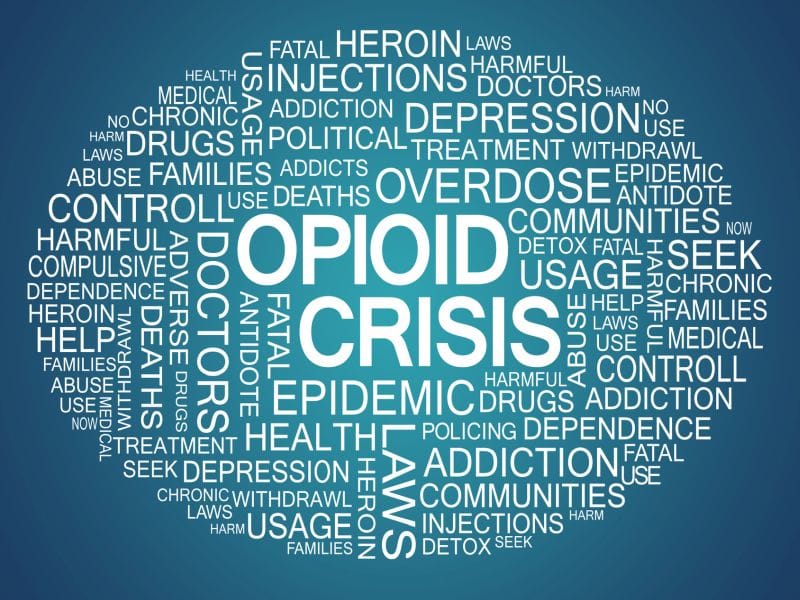WEDNESDAY, Oct. 17, 2018 (HealthDay News) — Adding to growing alarm about America’s opioid crisis, cases of a potentially deadly heart infection have jumped 10-fold among North Carolina’s injection drug users, new research shows.
The infection is endocarditis, which strikes one or more of the heart’s four valves. Usually a byproduct of aging, it can also develop when bacteria is introduced into the body through use of injected drugs such as heroin.
“We know that drug-associated endocarditis is increasing nationally, but the magnitude of the rise has been somewhat stunning,” said study author Dr. Asher Schranz, a fellow in the Division of Infectious Diseases at the University of North Carolina at Chapel Hill.
Between 2007 and 2017, endocarditis-related hospitalizations and surgeries involving injection drug users in North Carolina rose more than 10-fold, with most of the rise occurring since 2013, the study found.
The median age of patients who had surgery for drug-related endocarditis was 33, meaning half were older, half younger. That’s far younger than the norm.
The North Carolina findings echo a similar trend in West Virginia. In April 2018, Charleston Area Medical Center experts reported a statewide doubling of drug-related endocarditis admissions between 2008 and 2015.
Still, North Carolina’s dramatic spike surprised investigators.
Up until the early 2010s, other studies had shown drug-associated endocarditis increasing two- or threefold, Schranz said. A North Carolina study last year, however, reported a 12-fold rise between 2010 and 2015.
“In our study,” Schranz said, “we found that this problem has continued to sharply rise through at least mid-2017.”
Schranz explained why: Typically, endocarditis risk is driven by age, as heart values weaken over time, he said. The weakened valves can become infected if bacteria or fungi enter the blood, which, he noted, can make an otherwise routine event such as a dental cleaning a high-risk venture for seniors.
The damage can also occur when people inject drugs. “Those damaged heart valves may then become infected if that person injects bacteria into the bloodstream by not properly sterilizing the skin, or by injecting non-sterile water or drugs,” Schranz explained.
The upshot: Endocarditis has become “a severe consequence of the opioid crisis that has received insufficient attention,” Schranz said.
Besides compromising heart valve integrity, endocarditis can raise the risk for heart failure, strokes and/or joint infections. Open-heart surgery to replace a damaged heart valve with a prosthetic is often required.
Schranz and his team’s analysis of a statewide database revealed that nearly 23,000 patients were hospitalized with endocarditis between 2007 and 2017, and more than 1,650 underwent surgery.
As recently as 2013, fewer than 10 surgeries a year were done to treat drug-related endocarditis, the study found. By 2017, that figure stood at 109.
Compared with other cases, drug-related endocarditis patients were more likely to be women, white, uninsured, Medicaid recipients, and young.
“The opioid crisis has dramatically impacted the health of young persons in the U.S.,” Schranz said. “There has been increasing hepatitis C and a large outbreak of HIV in Indiana due to drug use. However, we feel that endocarditis is a severe consequence of the opioid crisis that has received insufficient attention.”
Dr. Arthur Williams is an assistant professor at Columbia University’s Division on Substance Use Disorders, in New York City. He said the rising heart infection rates among injection drug users underscore the urgent need to get the nation’s opioid epidemic under control.
“Sky-high rates of endocarditis reflect the total failure of our treatment system to successfully shepherd patients with opioid use disorders into quality care with FDA-approved medications — such as buprenorphine — which have repeatedly shown to reduce injection-related behaviors and reduce or eliminate opioid use,” said Williams. He was not involved with the study.
Schranz and his colleagues presented their findings earlier this month in San Francisco at IDWeek, a joint meeting of experts from the Infectious Diseases Society of America, the Society for Healthcare Epidemiology of America, the HIV Medicine Association, and the Pediatric Infectious Disease Society.
Research presented at meetings is typically considered preliminary until published in a peer-reviewed journal.
More information
The American Heart Association has more on endocarditis.
Copyright © 2026 HealthDay. All rights reserved.

